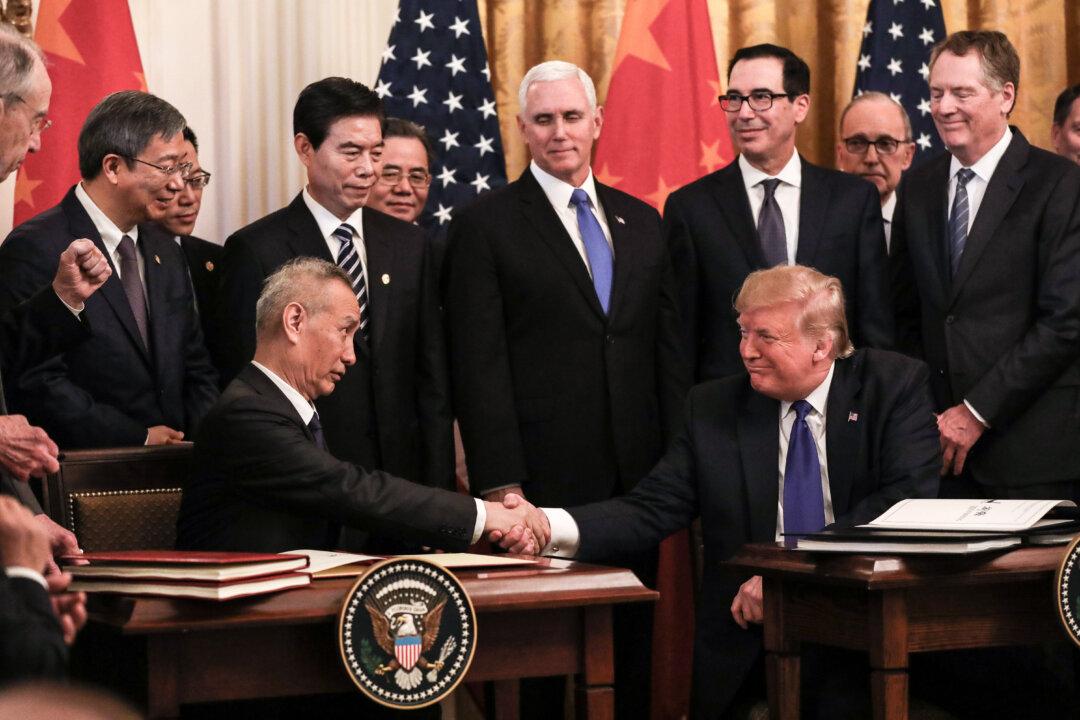WASHINGTON—The deepening fallout from the deadly coronavirus outbreak has raised questions as to whether China will be able to fulfill its commitments to make vast purchases of U.S. goods in the newly inked “phase one” trade deal.
Beijing has committed to buying $200 billion worth of additional U.S. goods and services over the next two years as part of the trade agreement, which went into effect on Feb. 14.





